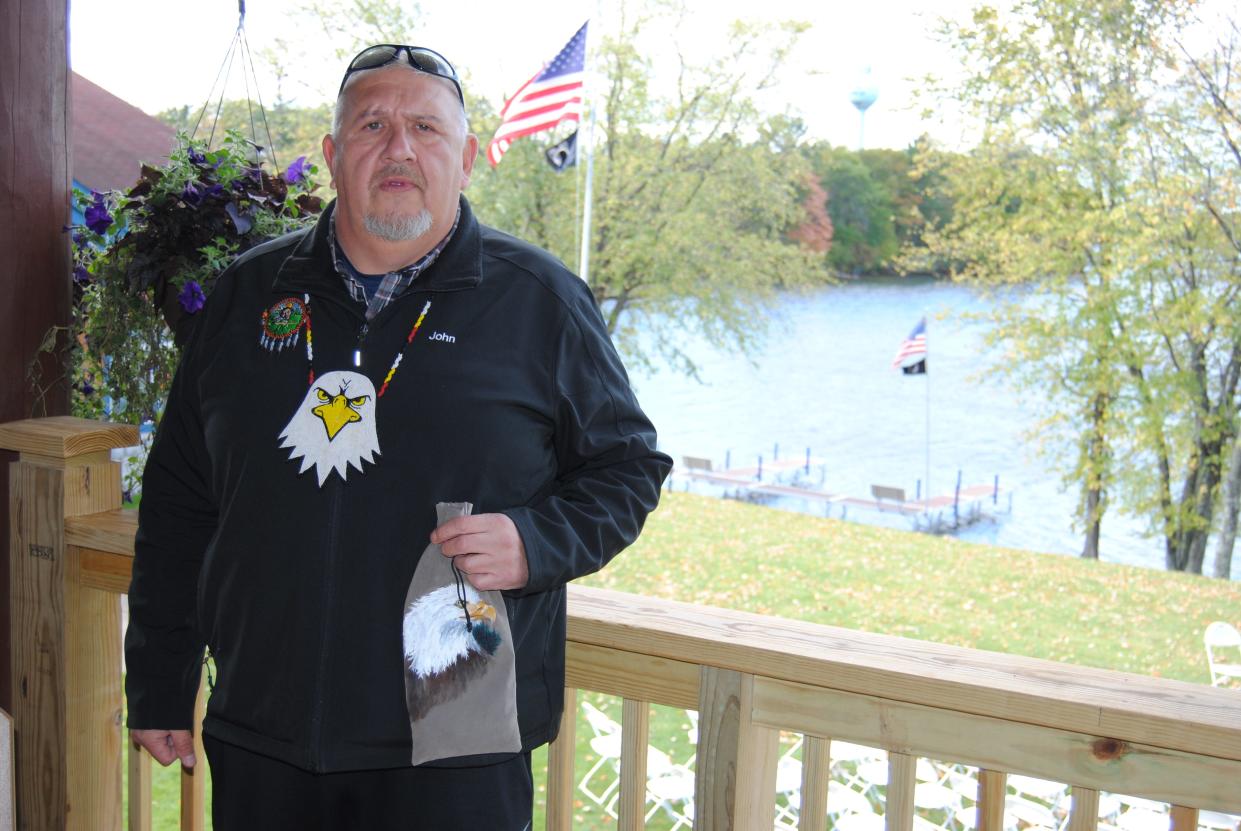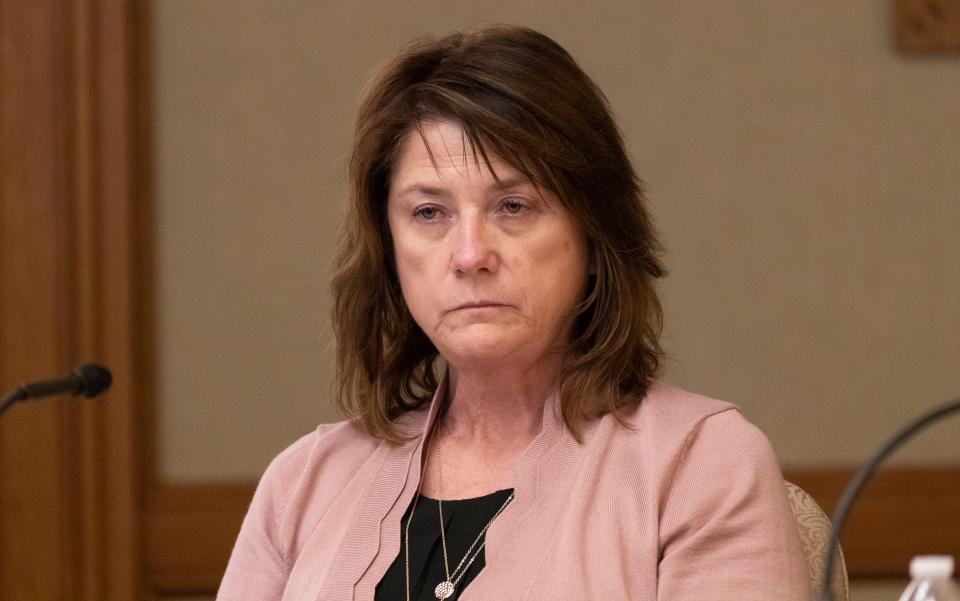GOP legislators, tribal officials continue to spar over withheld gaming money

- Oops!Something went wrong.Please try again later.
- Oops!Something went wrong.Please try again later.
After two tribes in Wisconsin won victories in federal courts this year over sovereignty issues, the state’s Joint Finance Committee is withholding promised gaming revenues from them. That's led to an ongoing war of words between tribal officials and Republican legislators.
Lac du Flambeau President John Johnson had speculated that the withholding of $1 million in funding to his tribe was retaliation for two land disputes on the Lac du Flambeau Reservation earlier this year.
In a statement, JFC co-chairs Sen. Howard Marklein, R-Spring Green, and Rep. Mark Born, R-Beaver Dam, said the funds weren't released because the Lac du Flambeau Ojibwe and Bad River Ojibwe have "taken adverse actions against their fellow Wisconsinites."
The sparring continued this week with State Sen. Mary Felzkowski, R-Tomahawk, firing back in a letter to Johnson.
“Good actors don’t give their neighbors 24 hours’ notice that they are barricading them in their homes,” Felzkowski wrote. “Good actors reevaluate their strategies when an elderly veteran is forced to wait 40 minutes for the barricades to be lifted so he can get to the hospital. Good leaders don’t cower to extremists who urge them to set aside reason and harm innocent parties.”
Felzkowski was referencing one of the land disputes, which involved the closing of four tribal roads used by non-tribal residential property owners to access their homes on the reservation. Tribal officials said the leases had expired on those roads 10 years ago and their requests to renew them were ignored.

The roads have been reopened as the non-tribal town of Lac du Flambeau agreed to pay the tribe a monthly fee until a more permanent arrangement can be reached.
Some of the affected homeowners had sued the tribe to force a reopening of the roads, but a federal court sided with the tribe over sovereignty.
Johnson had defended the closure of the roads as safeguarding the tribe’s territorial jurisdiction, in a Nov. 13 letter to Marklein and Born.
“As sovereign governments and stewards of our lands and waters, our respective tribal governments have taken these steps as any reasonable landowner would,” Johnson wrote.
Felzkowski wrote that she doesn’t have an issue with Johnson safeguarding tribal lands.
“What I do take issue with is the way you chose to handle the situation, and that you failed to exhaust every possible avenue before taking the drastic and profound measures you took,” she wrote. “Perhaps I’m overly confident in myself, but I’m certain that if you had picked up the phone and called me, I could have helped you to resolve this devastating disagreement with the town in a less destructive manner.”
Felzkowski indicated she’s willing to talk with Johnson.
“I can’t, and won’t, proclaim that either side of this conflict is the right side versus the wrong side, nor is it that simple, but I can say that in Wisconsin, we sit down and try to hash out our differences, because we know that is the way forward,” she wrote. “In this spirit, I look to a promise from you that we can reset this relationship for the sake of our shared constituents.”
The other ruling tied to the dispute is a 2022 federal appeals court decision in favor of Bad River and Lac du Flambeau that said Wisconsin can’t tax tribal landowners who live on reservation lands that have changed hands without congressional approval.
According to Wisconsin Public Radio, the non-tribal town of Sanborn in Ashland Country lost 85% of its taxable property as a result since the town is entirely on the Bad River Reservation.
In a letter sent to Bad River Chairman Robert Blanchard in response to the withholding of funds, Sen. Romaine Quinn and Chanz Green mentioned that, in addition, Sanborn has to pay a $1 million settlement to some tribal residents because of the ruling.
"Many concerned constituents have contacted us about the undue tax burden they now face and the uncertainty the decision has caused in their communities and relations with the tribe," the letter said.
Quinn and Green also noted that the tribe has agreed to fund half of the EMT services provided by the town.
"That is a positive step," the letter said. "In our view what is lacking today is an encompassing, long-term commitment to provide funding for services received by town residents who no longer are required to pay property taxes and are then subsidized by taxpaying residents."
They wrote that they look forward to further communication with tribal officials to discuss a long-term solution.
Johnson speculated the withholding of funds to Lac du Flambeau was also retaliation for another land dispute.
That incident involved the tribe demolishing a resale store owned by a Presbyterian church on the reservation after gravesites, including those of Indigenous people, were found underneath its parking lot this year
The tribe said it was looking to build a natural setting in its place so its ancestors can rest in peace.
In September, the state’s Department of Administration requested that $11 million in tribal gaming revenues be given back to the 11 federally recognized tribal nations in the state — $1 million to each tribe.
But on Oct. 31, the Republican-led Joint Finance Committee approved only $9 million to be released — $1 million to each of only nine tribes, excluding the Lac du Flambeau and Bad River Ojibwe tribes.
“To add insult to injury, the source of the money is tribal gaming revenues produced by tribal casinos and paid to the state pursuant to the various gaming compacts,” Johnson wrote.
Frank Vaisvilas is a former Report for America corps member who covers Native American issues in Wisconsin based at the Milwaukee Journal Sentinel. Contact him at fvaisvilas@gannett.com or 815-260-2262. Follow him on Twitter at @vaisvilas_frank.
This article originally appeared on Milwaukee Journal Sentinel: Wisconsin tribes, GOP legislators spar over withheld gaming money

